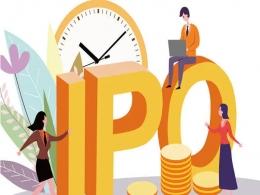When thinking of the history of copyright enforcement in the USA, one of the most disruptive technologies that would come to mind is Napster. In the late 90s, Shawn Fanning took a year out of college to develop a file-sharing system we have come to know and love in its multiple avatars today (DC++ being the on-campus version that everyone knows about but does not speak of much like the Dark Lord).
Prior to Napster's arrival, big recording companies bundled whole music albums into CDs, selling to a captive audience developed over multiple years. Forty years before the appearance of Napster, the RIAA (Recording Industry Artist's Association) was formed with the stated interest of protecting artist's rights, although laughably, their biggest lawsuits would turn out to be in the pursuit of royalties against college students and upcoming artists.
Napster embodied technology that was essentially a game-changer, earmarking a new era in digital content distribution. By 2000, however, the RIAA and some of the bigger artistes (including Dr. Dre) managed to sue and obtain a preliminary injunction against Napster, citing a loss in record sales due to the technology alongside a weaker presence in the networked music distribution domain (although, up to that point, the bigger music companies had not focused on innovating in this space, specifically).
Prior to this lawsuit, the introduction of the Betamax video-recording tapes had set a legal precedent when the courts found that Sony could not be held responsible (for the production of Betamax tapes, by Universal Studios) as people who recorded broadcast transmissions, usually watched it at home and didn't sell or distribute in a large scale. Additionally, the analog copies of these recordings did not easily lend themselves to repeated copying without degrading the original it was being copied from.
By reducing the unit of music procurement to single songs, instead of whole albums, Napster essentially conquered what Chris Anderson describes as the 'long tail' effect. People could pick, choose and order music in any way they wanted. Additionally, their potential selection of music was also bigger and better and there was more freedom in how people could obtain this music. Internet speeds, storage and the peer-to-peer architecture all evolved post-Napster to bring about modern file-sharing services, including Gnutella, where the decentralisation of the design made it harder to recognise whom to hold liable. The distribution of copyrighted songs in Napster's case was held illegal and although the company has about 10 patents pending, it went out of business.
This technology is also used to illustrate some of the fundamental questions in asserting Intellectual Property Rights in Cyberspace who should be held responsible for upholding copyright? Should it be the individual user's responsibility to demonstrate restraint, the distributing technology's responsibility (such as Napster) to supervise the content being shared or the responsibility of individual artists and recording companies or consortiums to enforce this or should the law just block sites like Napster the second a preliminary injunction is issued? The answer(s) are specific to the precedents set in every jurisdiction but the heavy lobbying of organisations such as the RIAA have set very regressive precedents for Cyber law.
In India, the Bombay High Court recently announced that the Indian Performing Rights Society (IPRS what's in a name?) gets no royalties on broadcasts (radio mostly). In contrast to this, RIAA made $250 million in revenue from Internet Radio royalties in 2010. While it is obvious that technologies evolve faster than the law(s) to enforce the correct rights, the duality of digital assets (should software be patented or copyrighted?) poses interesting questions in the regulation of IPRs.






